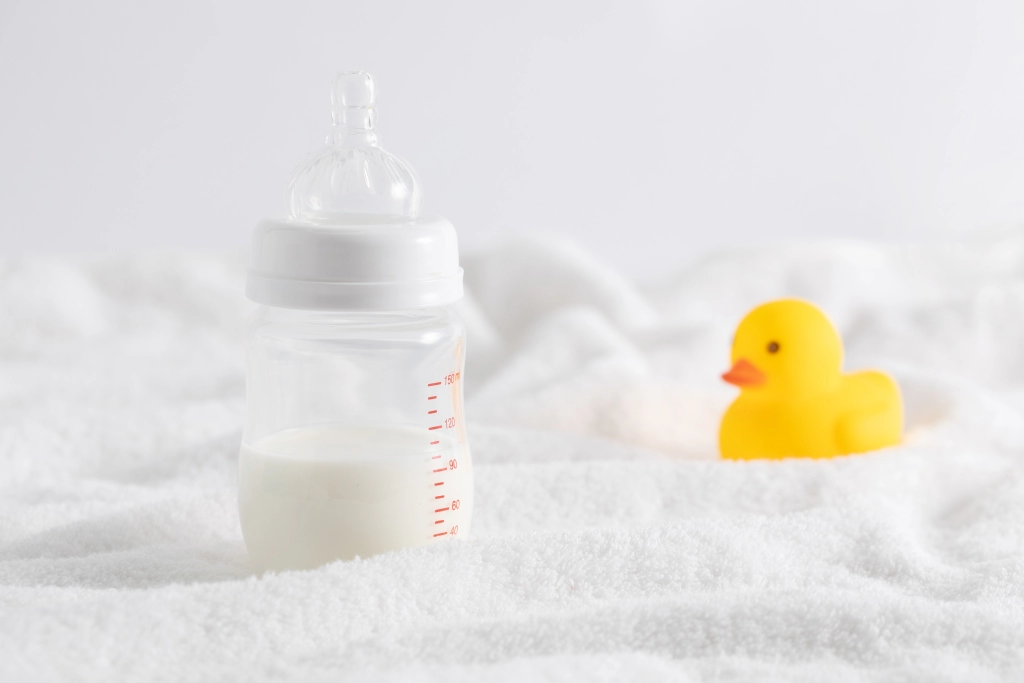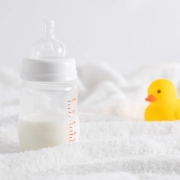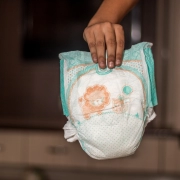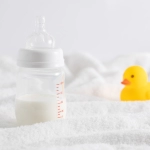Choosing to formula-feed your baby is a significant decision, and understanding the ins and outs of formula feeding is essential for providing your little one with the best care. In this discussion, we’ll dive into valuable information about formula, ensuring you’re well-equipped for this feeding journey.
Types of Formula
Formula comes in various types to suit different needs. From traditional cow’s milk-based formulas to alternatives like soy or hypoallergenic options, it’s crucial to consult with your pediatrician to select the formula that aligns with your baby’s nutritional requirements. See our post about the different types of baby formula available.
Preparing Formula
If you’re using a powder formula, make sure to mix it well to avoid clumps. You can use a bottle brush to help get rid of any clumps that may be stuck to the sides of the bottle.
Avoid preparing formula in advance. It’s best to prepare formula just before feeding, as pre-mixed formula can lose nutrients over time. If you need to prepare formula in advance, make sure to store it in the refrigerator and use it within 24 hours or as instructed by the manufacturer.
Formula Feeding Schedule
Unlike breastfeeding, formula feeding often follows a more structured schedule. Your pediatrician can guide you on the appropriate quantity and frequency of formula feedings based on your baby’s age, ensuring they receive the right nutrients at the right times.

Sterilizing Bottles and Equipment
Maintaining cleanliness in formula feeding is paramount. Regularly sterilize bottles, nipples, and other feeding equipment to eliminate any potential risks of infections, ensuring your baby receives safe and uncontaminated formula.
Formula Bonding Moments
While formula feeding is about nourishment, it’s also a chance to bond with your baby. Hold them close, make eye contact, and savor these moments of connection during feedings. Establishing a positive feeding environment contributes to your baby’s overall well-being.

Choosing the Right Formula for Growth
As your baby grows, their nutritional needs evolve. Consult your pediatrician on transitioning to age-appropriate formulas that cater to their changing requirements for optimal growth and development.
Preventing Bottle Propping
Avoid leaving the bottle in your baby’s mouth for extended periods, as it can pose risks of choking and ear infections. Hold the bottle yourself during feedings to ensure a safe and comfortable experience for your little one.
Handling Feeding Transitions
Introducing solid foods is a crucial step in your baby’s development. Discuss with your pediatrician about smoothly transitioning from formula to solids, ensuring a seamless integration into their expanding diet.

Expert Guidance and Support
Always consult with your pediatrician for personalized advice and guidance on formula feeding. Seeking support from parenting groups and communities can also offer valuable insights and shared experiences, making your formula feeding journey a positive and informed one.
Arming yourself with knowledge about formula types, feeding schedules, and hygiene practices sets the stage for a confident and informed formula feeding experience. Remember to consult with your pediatrician for tailored advice, ensuring your baby receives the best nourishment at every stage of their development.










Trackbacks & Pingbacks
[…] Checkout our posts about breastfeeding and formula feeding. […]
[…] As a parent, choosing the right formula for your baby is a significant decision. With an array of options available, it’s essential to understand the types of baby formulas on the market and how to select the one that aligns with your baby’s needs. Let’s dive into the world of baby formulas to make an informed decision for your little one. Don’t forget to get some initial information about considering baby formula feeding from our ultimate guide. […]
Comments are closed.